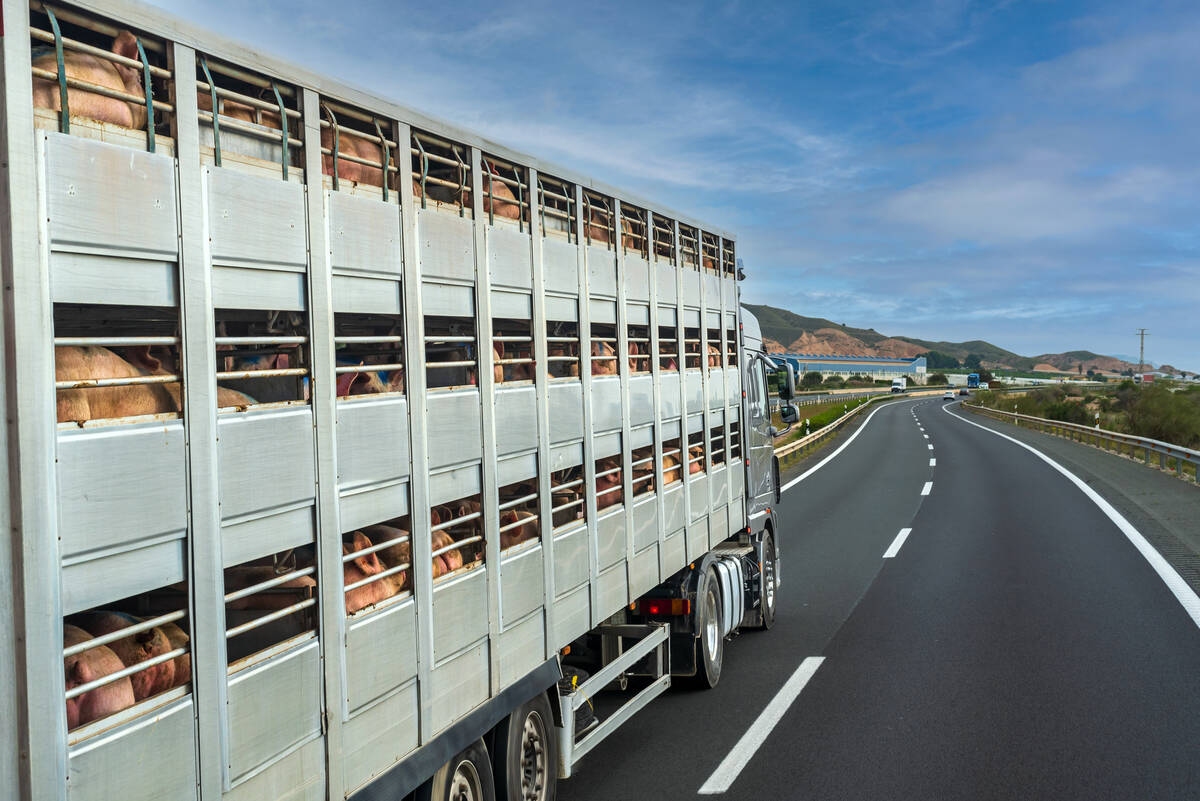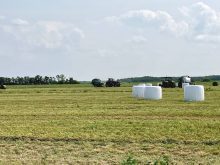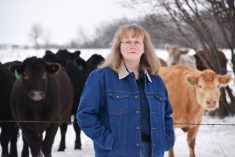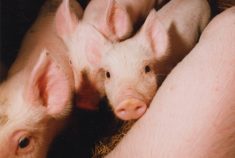Don’t expect the hurt to disappear overnight, Manitoba pork producers are being warned.
The U.S. drought sent feed prices soaring last year, and it’s no wonder, Andrew Dickson told attendees at the annual Manitoba Swine Seminar.
“You can’t have three billion bushels of corn disappear out of the feed grains industry and not have an impact on all of its major users,” said the general manager of the Manitoba Pork Council.
Even a bumper crop this year won’t likely drop prices to previous lows.
Read Also

Pig transport stress costs pork sector
Popular livestock trailer designs also increase pig stress during transportation, hitting at meat quality, animal welfare and farm profit, Agriculture and Agri-Food Canada researcher says
“Grain values won’t stay at record levels — but the norms will be higher,” said Len Penner, president of Cargill’s Canadian operations, predicting grain prices will settle on a new, higher plateau.
What that means for Manitoba’s export-reliant hog sector remains to be seen.
Washington’s country-of-origin labelling law has also had a major impact on Manitoba’s hog sector, and the U.S. has yet to comply with an order from the World Trade Organization to comply with trade laws.
In the interim, the Manitoba Pork Council wants a stabilization program to help producers stay afloat. It has proposed a refundable, universal levy, but still needs the provincial government to agree to act as a guarantor.
Dickson said it’s a bad time to be asking any government for money. “The fiscal position of the federal government at the moment isn’t the best,” said the general manager. “They’re running a huge deficit, and we’re coming in and asking for financial assistance.”
It’s also hoped a pending trade deal with European Union will reach a successful conclusion.
“Right now the Canadian market is essentially wide open for European imports, but we have very little access to the European Union in terms of tonnage and quotas,” Dickson said.
Generating sales in Europe, which would also mean conforming to its animal welfare rules, might take awhile but would be a boost for battered industry, he said, adding the sector must continue to move ahead.
“We continue to have very productive sows,” he said, but added that advantage could “wither” as American producers are expected to close the current productivity gap in the next five to 10 years.


















